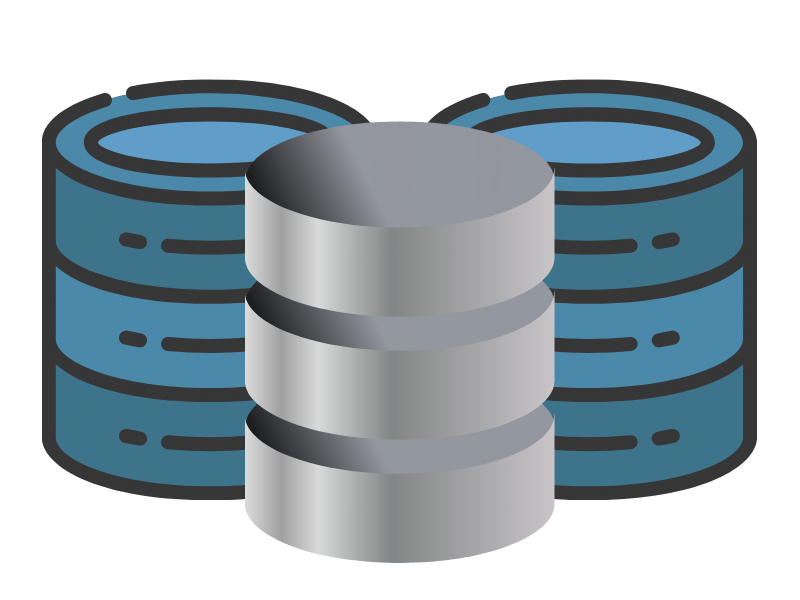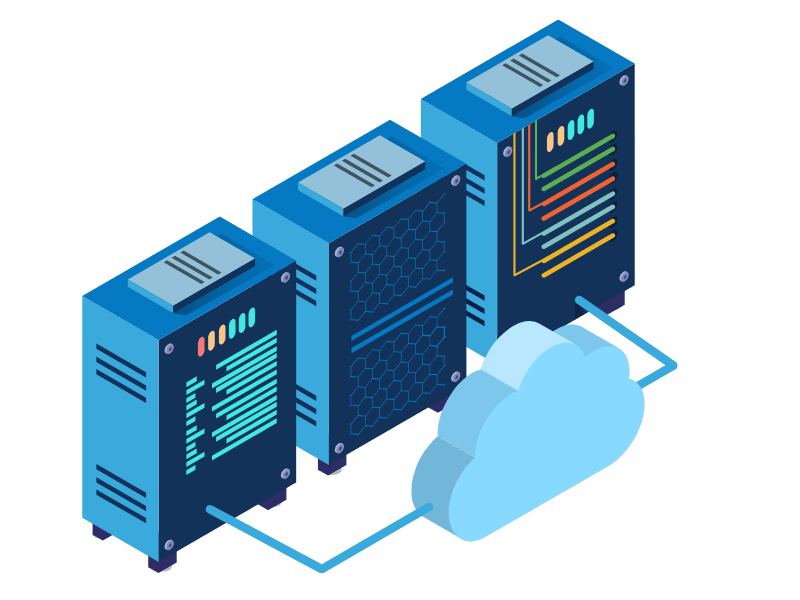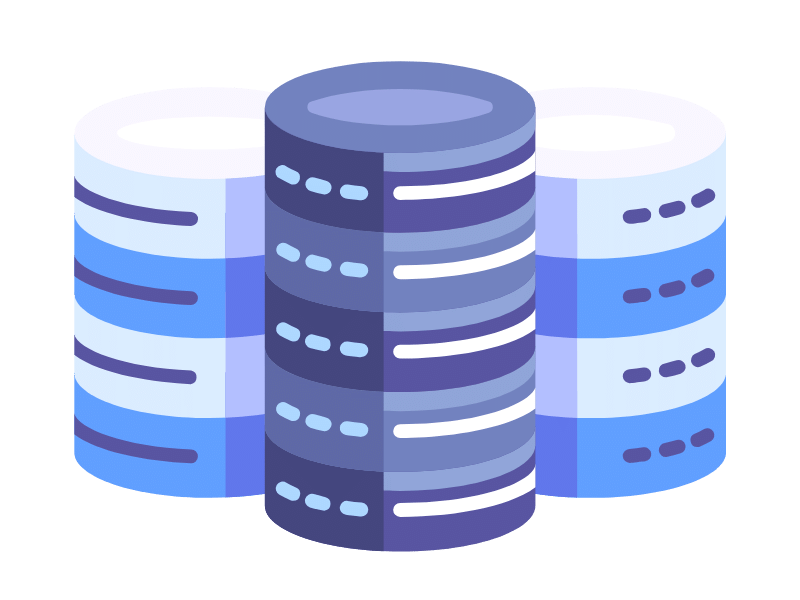






👋 10k+ learners get trained.
Database fundamentals
Connect with Our Expert!
Find out more about Database fundamentals
A database fundamentals course provides a foundational understanding of how data is stored, organized, and managed in databases. It covers core concepts such as data models, relational databases, SQL (Structured Query Language), normalization, and basic database design. Students learn how to create, query, and manipulate databases, as well as understand the role of primary keys, foreign keys, and relationships between tables. The course also introduces database management systems (DBMS) and their applications in real-world scenarios.
Download Brochure
Please enter your information to download our brochure.
About Database fundamentals
-
Understand core database concepts, architecture, and real-world data applications.
-
Learn relational models, tables, attributes, and entity relationships clearly.
-
Master SQL queries for data retrieval, updates, and table creation.
-
Explore normalization techniques to eliminate redundancy and improve efficiency.
-
Identify primary keys, foreign keys, and relational integrity constraints.
-
Design logical databases using ER diagrams and schema principles.
-
Gain hands-on experience with popular database management systems (DBMS).
-
Study indexing, transactions, and concurrency control in databases.
-
Understand data security, user access control, and backup techniques.
-
Apply knowledge through practical projects and real-world database scenarios.
Database fundamentals Packages
Database fundamentals Training
Database fundamentals Corporate Package
Course Contents
Send Course Enquiry
- What is a database?
- Types of databases (Relational, NoSQL, etc.)
- Database Management Systems (DBMS)
- Applications of databases in real life
- Overview of popular DBMS (MySQL, PostgreSQL, Oracle, SQL Server)
- Basics of the relational model
- Tables, rows, and columns
- Keys: Primary Key, Foreign Key, Candidate Key
- Relationships: One-to-One, One-to-Many, Many-to-Many
- Introduction to data modeling
- Entities and attributes
- Relationships and cardinality
- ER diagrams
- Converting ER models to relational schemas
- Introduction to SQL
- SELECT statements
- Filtering data with WHERE
- Sorting with ORDER BY
- Using DISTINCT
- SQL functions (COUNT, SUM, AVG, etc.)
- GROUP BY and HAVING clauses
- JOIN operations (INNER, LEFT, RIGHT, FULL)
- Subqueries
- Aliases and nested queries
- Creating and modifying tables (CREATE, ALTER, DROP)
- Inserting, updating, and deleting data (INSERT, UPDATE, DELETE)
- Constraints (NOT NULL, UNIQUE, CHECK, DEFAULT)
- Redundancy and anomalies
- Normal forms: 1NF, 2NF, 3NF (and BCNF optional)
- Functional dependencies
- Designing normalized schemas
- What is a transaction?
- ACID properties
- Commit and rollback
- Concurrency control and isolation levels
- Deadlocks
- Introduction to indexing
- How indexes improve performance
- Query execution plans
- Basic optimization tips
- Overview of NoSQL databases
- Types: Document, Key-Value, Column, Graph
- When to use NoSQL vs. relational databases
- Example: MongoDB basics
User roles and permissions
Backup and recovery strategies
Basic database security concepts
Design a small relational database
Implement using SQL
Populate with sample data
Write queries to extract meaningful insights
Optional: Present ER diagram and normalization steps
Eligibility of the course
- Educational Qualification: Minimum high school diploma or equivalent qualification.
- Basic Computer Knowledge: Familiarity with using computers and common software.
- Mathematics Skills: Basic understanding of logic, sets, and algebra is helpful.
- English Proficiency: Ability to read and understand technical instructions in English.
- Access to Computer: Personal laptop or desktop for hands-on practice exercises.
- Internet Access (if online): Stable internet for accessing course materials and tools.
- Minimum Age (if applicable): Typically 16 years or older.
Key takeaways
- Comprehensive Study material
- Access to Practice tests
- Access to LMS course content
- Access to course assignments
- Industry-relevant case-studies

Course features

Beginner-Friendly Curriculum

Structured Modules

Practical SQL Training

Visual Data Modeling

Database Design Techniques

Interactive Assignments & Quizzes

Capstone Project

Platform-Ready Tools
Course Benefits

- Learn the core principles of how data is stored, organized, and accessed.
- Understand relational models, data types, and database architecture.
- Gain practical experience with SQL, the industry-standard language for managing relational databases.
- Learn how to create, query, and manipulate data using real-world examples.
- Improve your ability to analyze and structure data.
- Develop logical thinking through database design and normalization.
- Databases are essential in roles like:
- Data Analyst
- Backend Developer
- Database Administrator (DBA)
- Software Engineer
- Business Intelligence Analyst
- Most tech and data jobs require or prefer database knowledge.
- Automate data processing and reporting tasks.
- Write efficient queries to extract useful insights quickly.
- Prepares you for advanced topics such as:
- NoSQL databases (MongoDB, Cassandra)
- Big Data systems (Hadoop, Spark)
- Cloud databases (AWS RDS, Google Cloud SQL)
- Database tuning and security
- Helpful for business professionals, product managers, and researchers who work with large amounts of data.
- Understand how to communicate better with technical teams.
- Useful in sectors such as:
- Finance
- Healthcare
- E-commerce
- Education
- Government and NGOs
FAQs
Asked Questions & Answer
This course introduces the fundamental concepts of databases, including data models, relational databases, SQL (Structured Query Language), database design, and normalization.
This course is ideal for:
- Beginners with no prior database experience
- Students in computer science or information technology
- Professionals transitioning into data-related roles
Basic computer literacy is required. Knowledge of programming or IT concepts can be helpful but is not mandatory.
Typical topics include:
- Introduction to databases and DBMS
- Relational model and ER diagrams
- SQL (queries, joins, DDL, DML)
- Normalization and database design
- Indexing and transactions
- Introduction to NoSQL (optional or advanced)
Yes, you will learn how to write and execute SQL queries to create, read, update, and delete data in a relational database.
The course typically includes:
- SQL exercises using tools like MySQL, PostgreSQL, or SQLite
- Projects involving real-world data
- ER diagram creation
- Schema design tasks
Yes, depending on the course, you may need:
- A local database (MySQL, PostgreSQL, SQLite)
- A SQL IDE or interface (like DBeaver, pgAdmin, or MySQL Workbench)
Some courses use web-based platforms, so installation may not be required.
If you are taking course from us you will be getting the course completion certificate .
Course length varies, but an introductory course typically takes:
- 4–6 weeks (part-time)
- 15–30 hours total study time
After completing this course, you can:
- Move on to advanced topics like database optimization, security, or administration
- Learn about NoSQL databases (MongoDB, Cassandra)
- Begin work with data analysis, backend development, or data engineering
Didn’t find the answer? Contact us here

Featured Links
Contact us
- PMP® Certification Course |
- CAPM Certification Course |
- PMP Certification Training in Mumbai |
- PMP Certification Training in Pune |
- PMP Certification Training in Hyderabad |
- PMP Certification Training in Delhi |
- PMP Certification Training in Chennai |
- PMP Certification Training Course in Ahmedabad |
- PMP Certification Training Course in Bangalore |
- PMP Certification Training Course in Bhubaneswar |
- PMP Certification Training Course in Chandigarh |
- PMP Certification Training Course in Gandhinagar |
- PMP Certification Training Course in Faridabad |
- PMP Certification Training Course in Dombivli |
- PMP Certification Training Course in Coimbatore |
- PMP Certification Training Course in Ghaziabad |
- PMP Certification Training Course in Gurgaon |
- PMP Certification Training Course in Indore |
- PMP Certification Training Course in Jaipur |
- PMP Certification Training Course in Mysore |
- PMP Certification Training Course in Lucknow |
- PMP Certification Training Course in Kolkata |
- PMP Certification Training Course in Kochi |
- PMP Certification Training Course in Nagpur |
- PMP Certification Training Course in Navi Mumbai |
- PMP Certification Training Course in Patna |
- PMP Certification Training Course in Pimpri |
- PMP Certification Training Course in Vadodara |
- PMP Certification Training Course in Trivandrum |
- PMP Certification Training Course in Thane |
- PMP Certification Training Course in Surat |
- PMP Certification Training Course in Noida |
- PMP Certification Training Course in Visakhapatnam |
- PMP® Certification Training Course in Doha |
- PMP Certification Training in New York |
- PMP Certification Training Course in Chicago |
- PMP Certification Training in Austin |
- PMP Certification Training in Minneapolis |
- PMP Certification Training in Atlanta |
- PMP Certification Training in Dallas |
- PMP Certification Training in San Diego |
- CAPM Certification Training in Mumbai |
- CAPM Certification Training in Bangalore |
- CAPM Certification Training in Hyderabad |
- CAPM Certification Training in Delhi |
- CAPM Certification Training in Pune |
- CAPM Certification Training in Chennai |
- CAPM certification Training in Kolkata |
- CAPM certification Training in Gurgaon |
- CAPM certification Training in Noida |
- CAPM Certification Training in Ahmedabad |
- PMI Certified Professional in Managing AI (PMI-CPMAI)™ |
- PMI-RMP - PMI Risk Management Professional |
- PMI-PMOCP - PMI® Project Management Office Certified Professional
- AZ-900: Microsoft Azure Fundamentals |
- AZ-104: Microsoft Azure Administrator |
- AZ-204: Developing Solutions for Microsoft Azure |
- AZ-305: Designing Microsoft Azure Infrastructure Solutions |
- AZ-400: Designing and Implementing Microsoft DevOps Solutions |
- AZ-500: Microsoft Azure Security Technologies |
- AI-900: Microsoft Azure AI Fundamentals |
- DP-900: Microsoft Azure Data Fundamentals |
- CLF-C02: AWS Certified Cloud Practitioner |
- GCP-FC: Cloud Digital Leader |
- GCP-ACE: Associate Cloud Engineer |
- GCP-PCA: Professional Cloud Architect |
- GCP-PCD: Professional Cloud Developer |
- GCP-PCE: Professional Cloud DevOps Engineer |
- GCP-PDE: Professional Data Engineer |
- GCP-PCNE: Professional Cloud Network Engineer |
- GCP-PCSE: Professional Cloud Security Engineer |
- GCP-ML: Professional Machine Learning Engineer |
- GCP-PBA: Professional Business Intelligence Analyst |
- DP-100: Designing and Implementing a Data Science Solution on Azure |
- DP-203: Data Engineering on Microsoft Azure
- PMP® is a registered mark of the Project Management Institute, Inc.
- CAPM® is a registered mark of the Project Management Institute, Inc.
- PMI-ACP® is a registered mark of the Project Management Institute, Inc.
- Certified ScrumMaster® (CSM) ia a registered trademark of SCRUM ALLIANCE®
- While we strive to ensure that all prices listed on our website are accurate, we reserve the right to modify them at any time without prior notice.
Copyright © Certifyera Consulting Services. All Rights Reserved | Designed and Developed by WebAnaya




